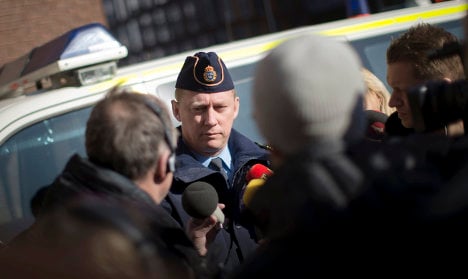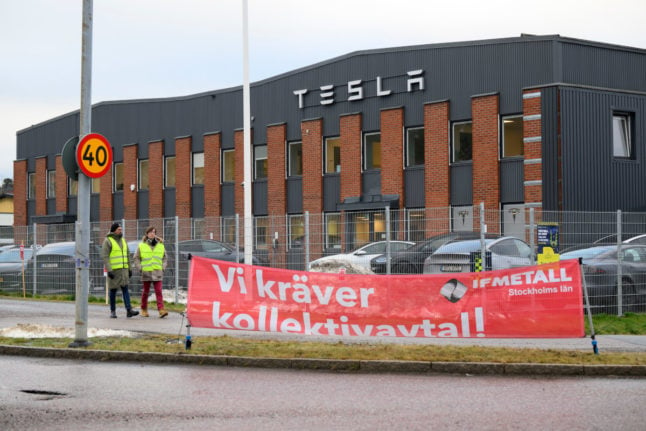CRIME
Two charged with plot on Gothenburg ‘killers’
After the most high-profile shooting in Sweden this year - an attack on a restaurant in Gothenburg - police have charged two men with plotting to murder the main suspects in an apparent revenge attack.
Published: 15 July 2015 15:18 CEST

Police investigating the shooting at a pub in Gothenburg in March. Photo: Björn Larsson Rosvall/TT
Two people were shot dead and eight others were injured in the shooting at a restaurant in Biskopsgården in March, in an attack that grabbed global headlines and saw Sweden's Prime Minister Stefan Löfven cut short a trip to Brussels to meet residents mourning the killings.
Four months on, police in west Sweden have charged two male cousins, aged 17 and 23, with plotting to murder several suspects linked to the original bloodshed, which was believed to be linked to growing gang warfare in the country's second largest city.
Prosecutor Ulrika Åberg revealed on Wednesday that officers had found three guns, including a machine gun, as well as a hand grenade hidden in an attic.
Police believe the cousins were planning to use the weapons and explosives to shoot or blow up at least one of the men linked to the restaurant killings as well as several others who had been at the pizza outlet, called Vår Krog och Bar, at the time.
The older cousin had admitted serious weapons offences, while his cousin had denied any involvement.
When asked by Swedish newswire TT if the shooting and the alleged planned revenge attack were part of a gang war, Åberg suggested that describing the men as part of “different networks” was more appropriate.
Police in Gothenburg are understood to have traced the relatives following extensive surveillance of the family, including bugging a car.
Two suspects believed to be linked to the restaurant shooting remain in police custody pending a trial expected to take place later this year.
Gothenburg has a long history of gang-related violence dating back to the early 1990s. Amir Rostami, a leading authority on Sweden's organized crime groups, who is based at Stockholm University told The Local in March that organized crime remained a persistant problem.
“Today, the gang environment is… I don't want to exactly call it the Wild West, but something in that direction,” he said.
“Some years ago, it used to be very strong groups controlling the criminal world, but today we've got more and a lot smaller groups fighting for control of their areas – and that has increased the number of conflicts we see between groups and individuals.”
Last month a report by Swedish public radio programme Ekot revealed that a number of young people identified by Gothenburg authorities eight years ago as being at risk of joining gang violence have since continued to commit crimes, despite repeated interventions by Swedish social services.
Url copied to clipboard!


 Please whitelist us to continue reading.
Please whitelist us to continue reading.